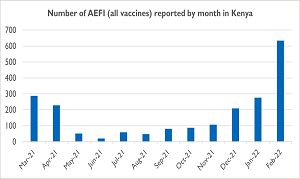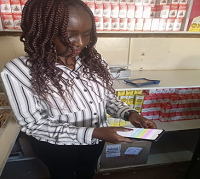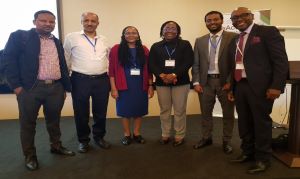Country Landscape and MTaPS’ Support
In March 2020, Kenya announced its first case of COVID-19, and like many countries, was ill-prepared to contain the virus. Personal protective equipment (PPE) was in short supply and the sudden influx of COVID-19 patients overwhelmed health facilities, which were not equipped to handle them. Workers lacked skills for COVID-19 infection prevention and control (IPC), waste management, or PPE use to support COVID-19 prevention and containment. To begin addressing these and other challenges, Kenya’s Ministry of Health (MoH) put a framework in place, engaging multisectoral stakeholders throughout the health care system to cultivate wide-ranging support for IPC as a critical national defense. Currently, Kenya’s effort to vaccinate 19 million people—70% of the adult population—by June 2022 is underway. By February 14, 2022, 25.8% had been fully vaccinated and 15,437,589 vaccine doses had been administered nationally (Source MOH-Kenya).
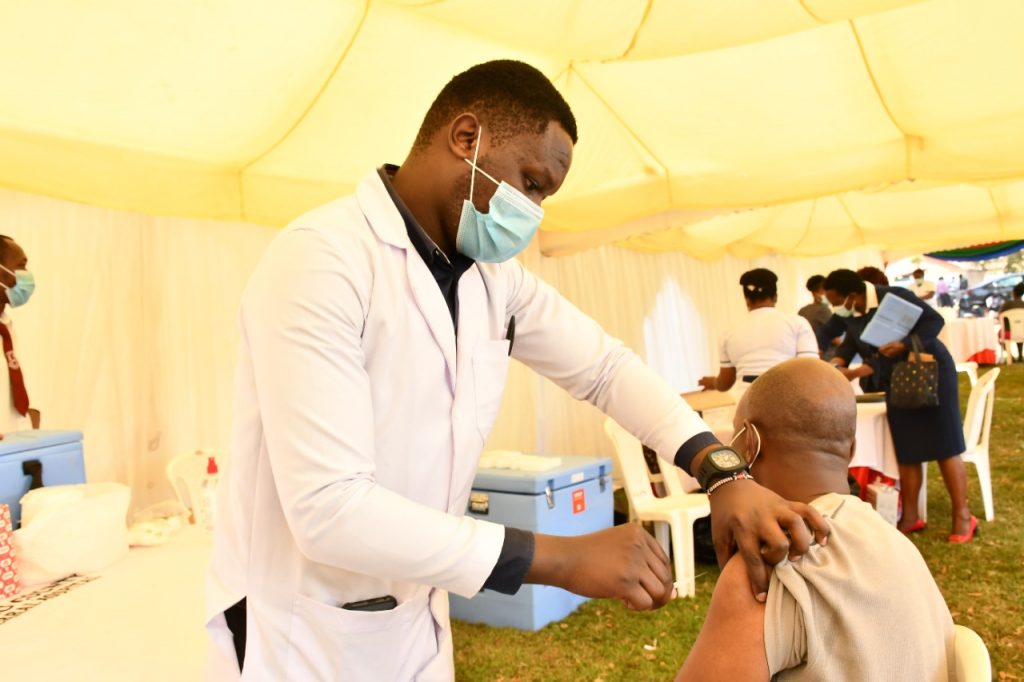
Nurse Newton Njenga vaccinates a client during the launch of the accelerated COVID-19 vaccination campaign in Kiambu County. Photo credit: MTaPS Kenya
USAID MTaPS joined MoH’s IPC effort alongside the national COVID-19 task force and task force subcommittees, providing technical expertise and coordinating national, county, and facility efforts to improve IPC for case management and health worker safety. MTaPS used a whole-market capacity building approach involving the government, development partners, faith-based sector, youth groups, non-health workers, and the private sector to rapidly improve IPC capacity of health care workers and non-health workers in managing COVID-19 patients and applying IPC practices to keep workers and patients safe. Early in the pandemic, MTaPS trained national master trainers who were supported to train county-based master trainers from 33 counties to rapidly cascade COVID-19 IPC knowledge to more health workers (read more). The trainings were accompanied by monitoring to maximize time efficiency and numbers trained while sustaining quality. When vaccines became available, USAID tasked MTaPS with supporting the government of Kenya with an expedited, equitable and safe introduction of the vaccines.
Select Highlights
Infection Prevention and Control (IPC) and Case Management
- Developed IPC guidance and policy documents and practices to bolster MoH’s pandemic response
- Performed rapid assessments, conducted compliance monitoring, and sensitized staff on IPC at 135 quarantine/isolation centers with targeted packages to strengthen compliance with IPC standards
- Developed a COVID-19 IPC training package, standard operating procedures, guidelines, education and communication materials, and job aid, including on surveillance, handling lab samples, and using PPE, equipping health workers for effective IPC
- Reached thousands of health workers nationwide with IPC training, using blended methods and embedding sustainable approaches for continued capacity gains including a tailored e-learning IPC course that reached more than 3,000 health professionals
- Supported establishment of sustainable IPC governance structures, the County Infection Prevention Control Advisory Committees in MTaPS’ focus counties of Nyeri and Kisumu (Read more)
- Trained hundreds of health care workers from prisons, support staff, and health care workers in handling aerosol-generating procedures.
Indicators as of September 2023

5099
Number of workers trained on COVID-19-related IPC and/or WASH

975
Number of health facilities supported for IPC and/or WASH for COVID-19
Covid Vaccine Deployment
- Supported the country’s National COVID-19 Vaccine Deployment Plan in various technical areas, including development of policies, guides, and tools for vaccine introduction and partner coordination across subcommittees of the national COVID-19 task force
- Helped strengthen regulatory systems, vaccine safety surveillance, and reporting of adverse events following COVID-19 vaccination through trainings:
- Reached 235 country health leaders with training on targeted spontaneous reporting of suspected COVID-19-related adverse events
- Trained pharmacovigilance expert review and advisory committee and investigators on safety data analysis and evaluation of adverse events following immunization (AEFI)
- Trained 384 COVID-19 vaccine AEFI investigators from 8 counties, 34 focal champions from the county health management team, and 350 focal persons from sub-county health management teams
- Facilitated COVID-19 vaccine supply chain and logistics management across 47 counties
- Developed training and educational materials for vaccine deployment, training over 1600 health care workers for safe administration of multiple vaccines in nine counties
- Supported vaccine communications and advocacy by promoting awareness of COVID-19 vaccines and addressing vaccine hesitancy and safety concerns

5
Number of COVID-19 vaccine multisectoral coordination mechanisms that meet regularly
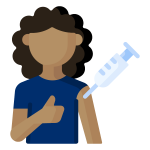
3462
Number of adverse event following immunization (AEFI) reports reviewed with MTaPS support

4043
Number of people trained on COVID-19 vaccine-related topics
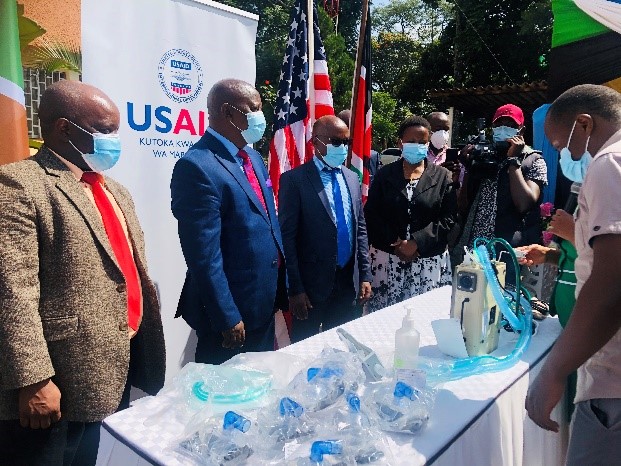
A demonstration to the governor, of the ventilators provided by USAID, in Nyeri County
Photo credit: USAID MTaPS Kenya
